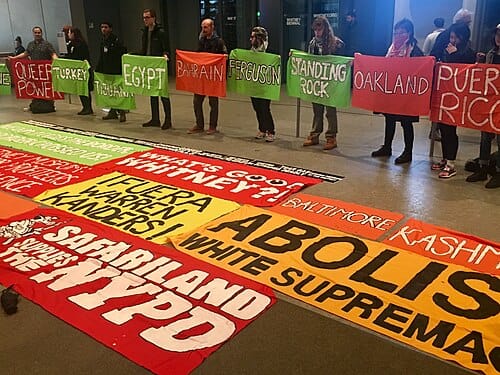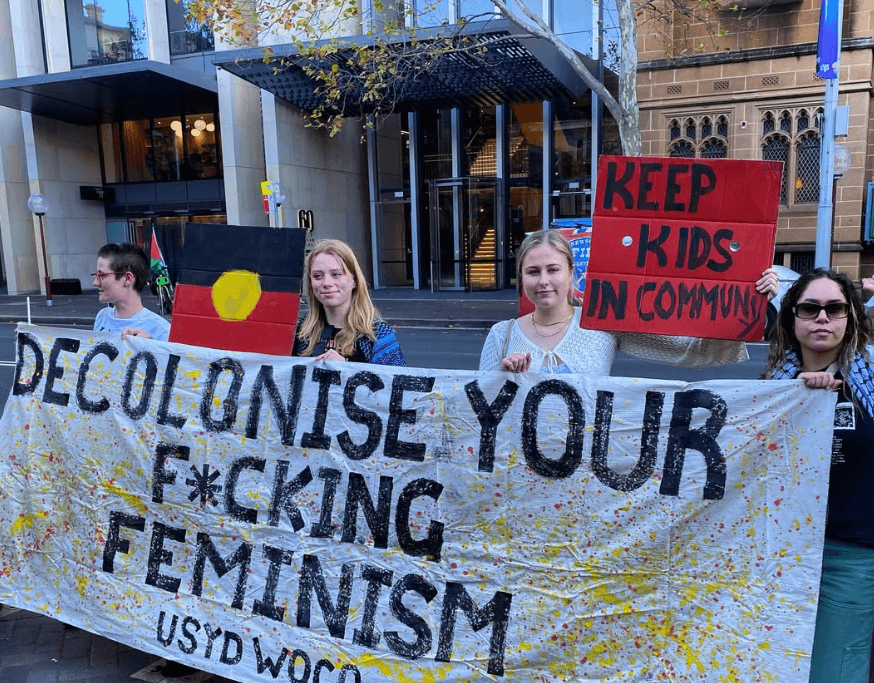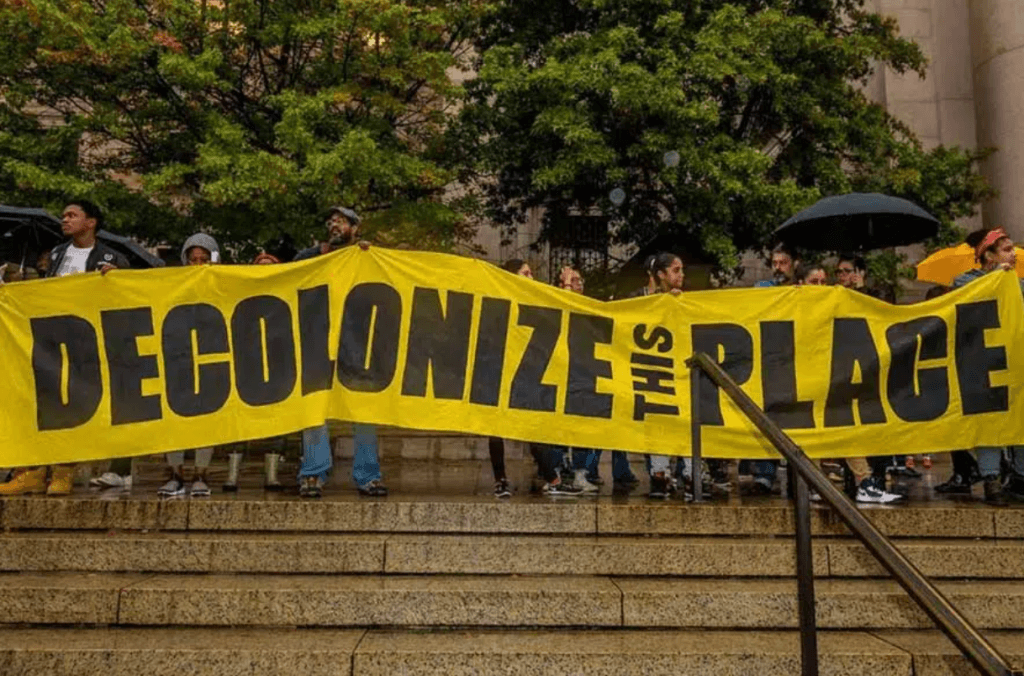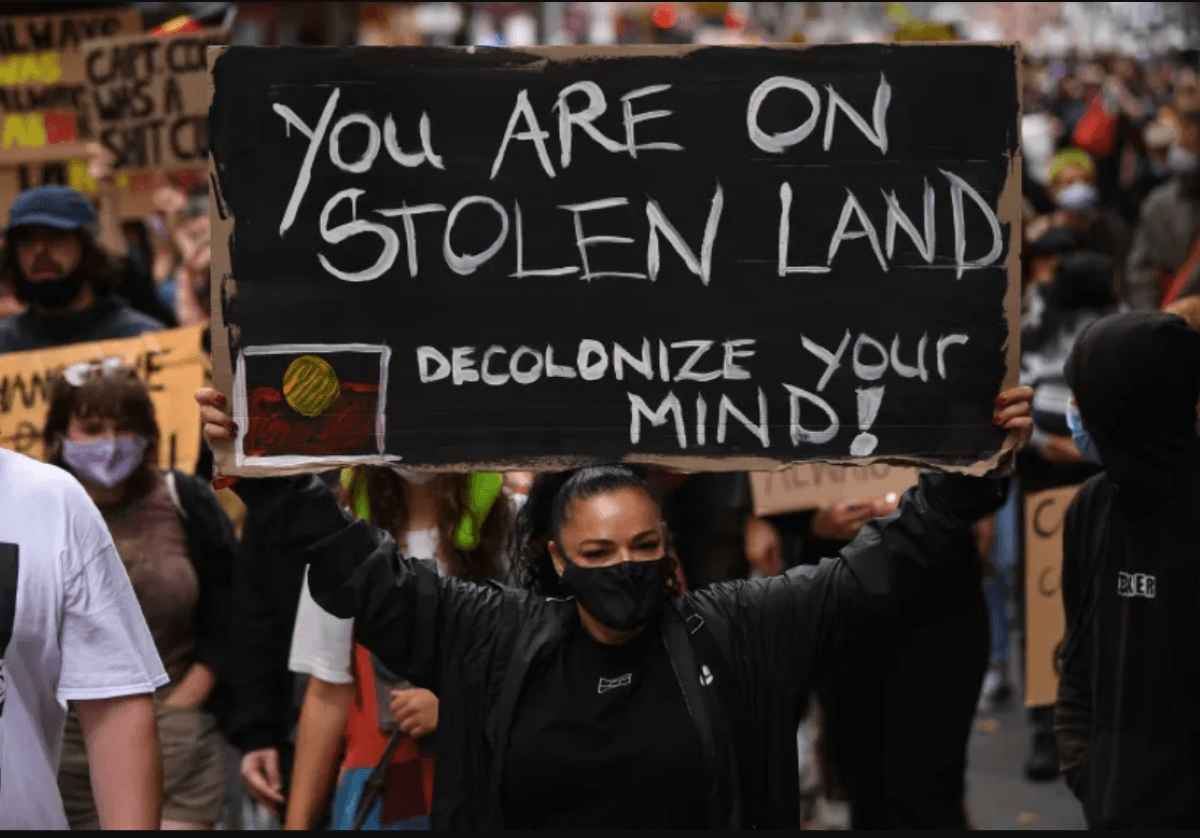Decolonisation at its core means undoing the harmful impact of colonialism. It is not just about gaining independence from colonial rule but also involves reclaiming knowledge, identity, language, culture, and ways of living that were suppressed by colonial powers. For feminist movements, decolonisation also involves interrogating how colonialism and patriarchy worked together to redefine gender roles and social norms.
Under colonial rule, certain ideas like what counts as civilised, educated, cultured, and feminine were imposed on societies, often very violently. These ideas continue to affect how people think today, especially when it comes to the intersection of gender roles and power.
Decolonisation asks: whose voices have been excluded? Whose ways of knowing have been erased? It forces us to prioritise the experiences of women and marginalised communities, who have historically faced suppression and exclusion. As scholars like Chandra Talpade Mohanty remind us, feminism must not speak for others but with and alongside them.
Colonialism and gender: How they’re connected
Colonialism was not just about the occupation of territory, but it was also about shaping our idea of gender, race, and civilisation. Colonial narratives framed colonised women as passive, backward, and in need of saving, often in contrast to western ideals of femininity. Indigenous ways of life where women often had central roles in families or communities were labelled as backward.

For example, British colonisers imposed Victorian ideals of morality in India. They judged Indian women for how they dressed, what they ate, and how they expressed themselves. The laws centring on marriage, sexuality, and property were changed to match British ideals, and this often ignored the rights women already had in their tradition.
In many parts of the world, colonial rule erased matrilineal systems, where lineage was traced through women, and replaced this with a more male-dominated system. In addition to this, sexual violence was used as a weapon to control women. So the fight against colonialism must also be a fight against gender injustice.
Decolonisation and feminism
To decolonise as a feminist means looking closely at our own ideas and where they come from. Who defines what is beautiful and modern? Often, these definitions are shaped by colonial histories and Western or Occidental viewpoints. Many mainstream feminist theories come from Europe and North America. While they do offer critical insights, they may not reflect the lived realities of Dalit, Bahujan, Adivasi, Black, Indigenous, and working-class women. For example, the idea that gender is the main source of oppression might not hold true value for someone who is already facing racism, casteism, or poverty.

Decolonial feminism asks us to centre the voices of the people who have been marginalised and silenced for way too long. It values oral tradition, local knowledge systems, and the lived experiences of many people. It also means reclaiming control over our bodies and that might come in the form of rejecting colonial beauty standards, speaking our mother tongue with pride or resisting forced sterilisation and state control over reproductive rights.
Examples of decolonial feminism
Decolonial feminism is thriving in grassroots movements worldwide where marginalised women challenge the legacy of colonial oppression and violence. For instance, Dalit women in India through collectives like the Dalit Women Fight Collective actively fight against both caste-based and gender-based violence. Their activism critiques the enduring legacy of colonial systems that continue to oppress the marginalised, urging us to rethink justice and empowerment outside colonial frameworks.
Similarly, Zapatista women in Mexico are reclaiming their indigenous cultural practices from colonial influence. Their movement emphasises the central role of women in creating an alternative and non-colonial system of governance. This highlights the intersection of indigenous rights and feminist resistance to colonialism.
In the United States, indigenous feminist movements, particularly those involved in the Standing Rock protests, are fighting against settler colonialism and environmental exploitation. These movements are led by women who resist the exploitation of their communities and lands. These real-life examples underscore how decolonial feminism continues to combat colonial legacies while reclaiming cultural and political power.
Why this work matters today
Even though colonial rule officially ended decades ago, its grave effects are still with us. Many of us grew up thinking fair skin is more beautiful, English is more intelligent, and Western education is more valuable. We were taught to look down on our own clothes, food, and even festivals. Women and marginalised groups of people are still judged based on outdated colonial morals. Others are forced to behave in ways that might fit in with upper-class, white, or Western morals just to be taken more seriously as human beings.
Feminist decolonisation also challenges how we view progress. Instead of measuring success by Western standards, it invites us to recognise and value local and ancestral ways of life that predate colonisation. It calls for a pluralistic vision of development and freedom rooted in community and care rather than domination.
The challenges we face
Even in feminist spaces, we can find casteism, racism and class bias. For example, some feminist campaigns often leave out marginalised groups of people. When that happens, the movement is no longer inclusive and becomes narrow. Also, terms like decolonisation are sometimes used without care even today. It has become trendy to say “decolonise your mind” without actually understanding the gravitas of the phrase. It invites us to change systems and challenge our own beliefs.
Real decolonial work is slow and sometimes uncomfortable. It asks us to give up our privilege and truly listen to the lived experiences of many. But that’s where the real power lies — in listening, in unlearning and in showing up for each other.
A path toward justice
Through the lens of feminism, decolonisation is not just about our history but also about justice, memory and imagination. It invites us to see the world differently, not through the eyes of colonisers but through the eyes of those who have been silenced, who have resisted and who have survived.

Feminist decolonisation means reclaiming the knowledge of our grandmothers, honouring the languages we were told to forget and building communities where everyone feels seen equally. It means asking the hard questions and making space for answers we may not expect.
Because in the end, decolonisation is not just about the past but also about the future we want to create. It’s about building a world where power is not imposed but shared. One where care replaces control. One where liberation is not just a promise for a few but a reality for all of us.
References:
- https://www.researchgate.net/publication/377011362_The_Coloniality_of_Gender
- https://oxfordre.com/education/display/10.1093/acrefore/9780190264093.001.0001/acrefore-9780190264093-e-431
- chrome-extension://efaidnbmnnnibpcajpcglclefindmkaj/https://ijrpr.com/uploads/V5ISSUE9/IJRPR33080.pdf
- chrome-extension://efaidnbmnnnibpcajpcglclefindmkaj/https://schoolsforchiapas.org/wp-content/uploads/2014/03/Zapatista-Women-A-Revolutionary-Process.pdf
- chrome-extension://efaidnbmnnnibpcajpcglclefindmkaj/https://journals.sagepub.com/doi/pdf/10.1177/2158244018785703
- https://livingblak.com/podcast/decolonizing-black-beauty-standards/
- chrome-extension://efaidnbmnnnibpcajpcglclefindmkaj/https://clas.osu.edu/sites/clas.osu.edu/files/Tuck%20and%20Yang%202012%20Decolonization%20is%20not%20a%20metaphor.pdf
About the author(s)
Juhi Sanduja is an Editorial Intern at Feminism In India (FII). She is passionate about intersectional feminism, with a keen interest in documenting resistance, feminist histories, and questions of identity. She previously interned at the Centre of Policy Research and Governance (CPRG), Delhi, as a Research Intern. Currently studying English Literature and French, she is particularly interested in how feminist thought can inform public policy and drive social change.





